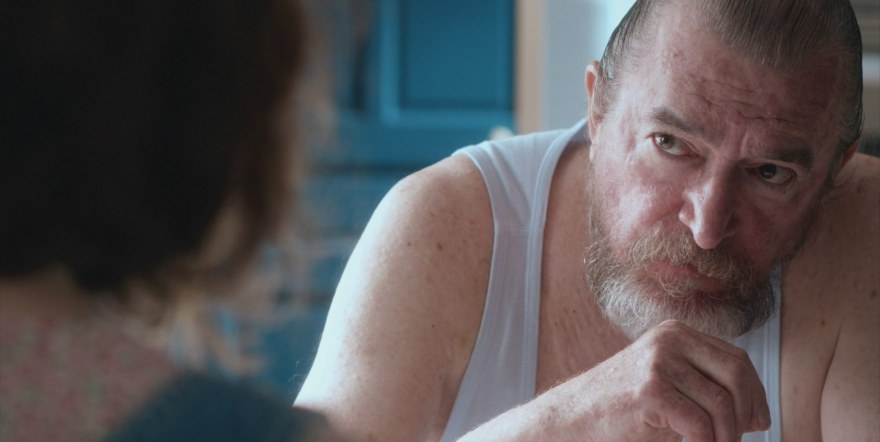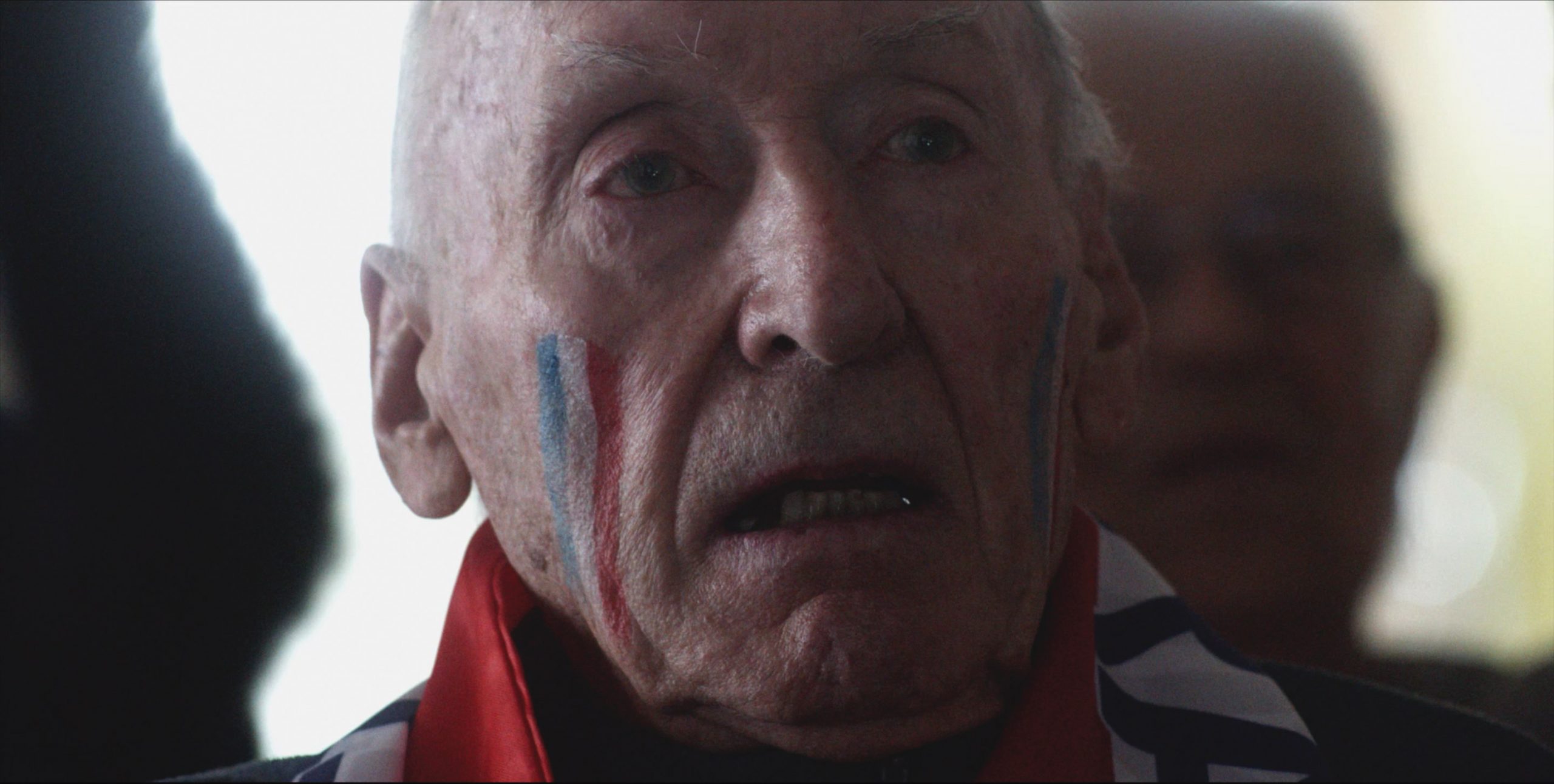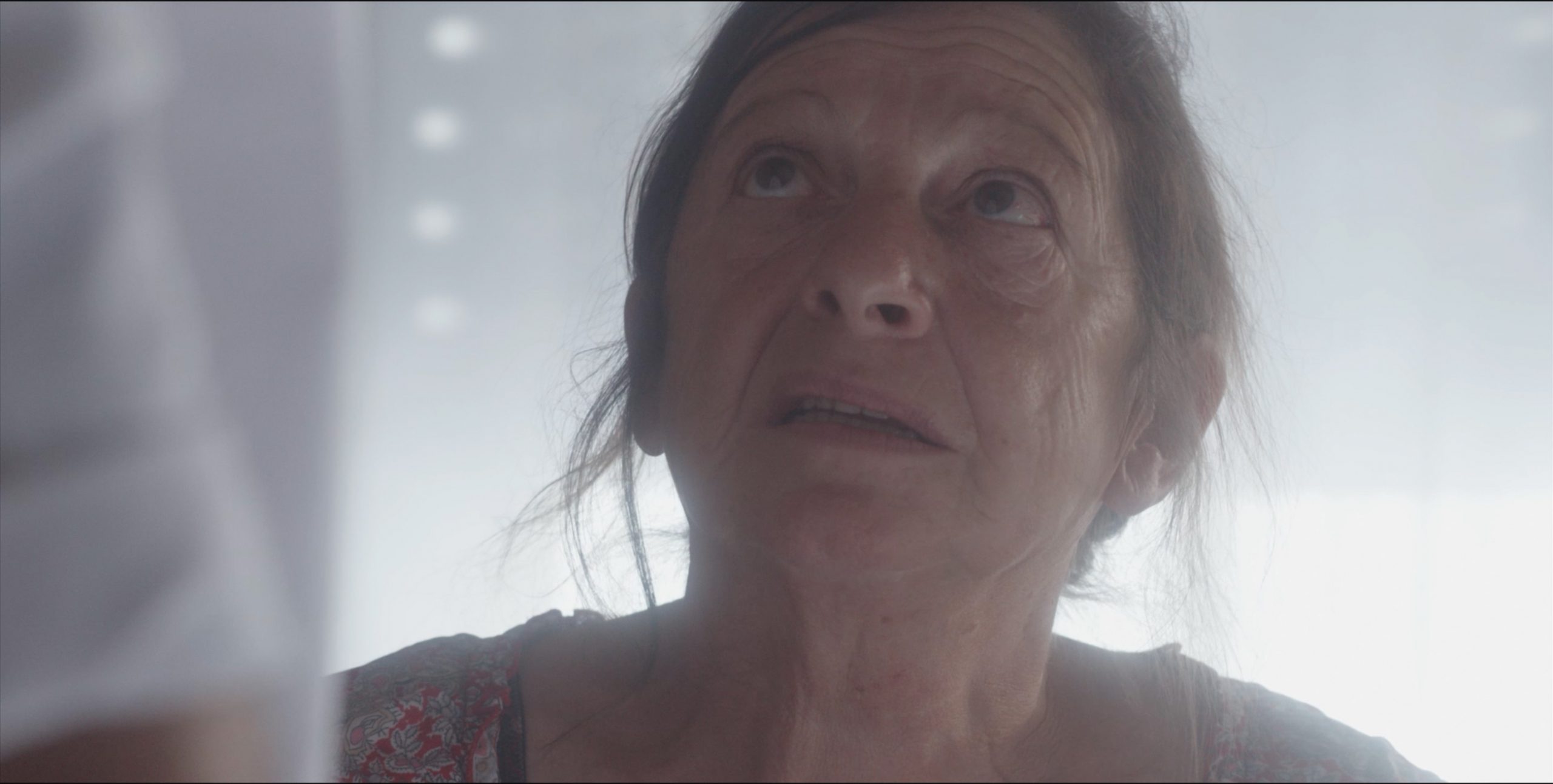Dîner avec Finale
Entretien avec Stéphan Castang, réalisateur de Finale
Quel a été le point de départ de votre film, Finale ?
Le film est né de plusieurs désirs : celui de parler des vieux. J’ai été élevé par des vieux et conserve pour eux une certaine tendresse. Il y avait également l’envie de travailler ou de retravailler avec des acteurs dont j’appréciais autant le talent que les qualités humaines : Chantal Joblon, François Chattot et Jean-Pierre Kalfon. De constituer une troupe de vieux en somme. Et enfin l’intuition de la place que nous laissions aux vieux aujourd’hui. Hors de notre regard. Souvent en EHPAD. En tout cas, à la marge. Ce mot de « marge » fut le déclic de mon histoire. À l’encontre du cliché de la mort au travail, je préférais faire avec la vitalité de Chantal, François, Jean-Pierre… et imaginer ainsi cette troupe de vieux à la marge. Des vieux qui n’ont pas envie d’être considérés comme des séniors. Des vieux un peu rock n’roll, qui fument des pétards et qui baisent toujours. Comme si c’était la dernière fois. C’est l’idée de ce court métrage, son mouvement : la dernière fois. Plus précisément, c’est du dernier amour dont je voulais parler, ou plutôt de trois derniers amours avec comme point de départ, un schéma classique : le mari, sa femme et son amant. Il ne s’agissait pas de faire un vaudeville, juste la chronique d’une sale journée. Le récit de trois personnes traversant à contre-courant la fête du moment, la finale d’un certain jour de juillet 2018.
Vous avez choisi de situer l’action de votre film lors d’un grand moment d’exultation collective : de la finale de la dernière coupe du monde. Pouvez-vous nous dire quelques mots sur ce choix ?
J’aime l’idée de l’échéance, du compte à rebours qu’offre une finale. Cela permet d’inscrire le film dans le monde d’aujourd’hui, de ses éphémères évènements et de regarder nos trois héros exclus de la fête. Je trouvais que c’était une manière assez concrète de les montrer à la marge. C’est pourquoi on ne voit jamais le match. C’est un bruit de fond qui ponctue, rythme la partition du film. Une matière sonore faîte de corne-brume, de cris de supporters… Le film travaille aussi sur ce frottement entre cette exaltation au son et l’intimité de nos personnages à l’image.
Quel regard portez-vous sur la présence et la représentation des plus âgés à l’écran ?
Elle est quasi-inexistante. Personne n’a envie de voir des vieux. On préfère parler de personnes âgées, du 3ème âge ou des seniors. Je trouve ces termes aseptisés, presque abstraits. Ils sentent déjà l’hôpital, l’EHPAD. Comme si nous avions peur de l’autre mot. Plus direct, plus franc : vieux. Ce n’est pas insultant, vieux, pas davantage que jeune. Je ne voulais pas filmer des personnes âgées mais des vieux. Et en gros plan encore.
Votre film met en scène l’infantilisation dont sont victimes vos personnages, qui ne correspond pas à la réalité de leur existence, faite de colère, de désir, de rébellion. A ce titre, on a l’impression que Finale dénonce habilement cette injustice. Est-ce l’une des intentions derrière votre film ?
Je n’ai pas trop le goût de la dénonciation… Mais effectivement, une des hypothèses du film est de montrer une infantilisation à l’œuvre. Passé un certain cap, vous n’êtes plus identifié comme une personne productive, responsable. Vous devenez un poids. Il y a des désirs qui ne sont plus de votre âge. Chantal, François, et Jean-Pierre se retrouvent ainsi confrontés à des situations absurdes : que ce soit avec les institutions sanitaires, la famille, la police, ou l’autorité… On les sermonne comme des adolescents. On leur demande de tenir un rôle plus conforme à leurs rides : grand-père, veuve avant l’heure… Il y a une inversion complète des rôles.
Avez-vous le sentiment, en tant que cinéaste, d’avoir une responsabilité dans cette question de la représentation ?
Si je suis d’accord avec la notion de responsabilité (même si elle reste forcément relative dans le domaine du court métrage), je me méfie du mot « représentation ». Je n’ai pas envie que les personnages du film représentent autre chose qu’eux-mêmes… C’est-à-dire des êtres avec des désirs, des contradictions, des aspects touchants, drôles, étranges ou même effrayants. Vouloir représenter une classe sociale ou d’âges à travers un personnage, c’est le transformer en symbole, en mascotte, c’est vouloir prendre parti. Notre responsabilité en tant que cinéaste, c’est peut-être déjà de choisir des corps que l’on voit rarement au cinéma et de faire avec eux, plutôt que « pour » ou « contre ».
Quel est l’avenir du format court métrage d’après vous ?
Même si la question de l’avenir en ce moment dépasse largement le domaine du court métrage… Il n’y a aucune raison que le format court ne poursuive pas sa belle route. En argentique, en numérique, en salle ou en plateforme, peu importe… Pourvu qu’il soit toujours l’endroit des audaces, c’est-à-dire d’explorer de nouvelles narrations, d’inventer de nouvelles formes possibles et ainsi de rendre toujours nécessaire le beau travail de toutes celles et de tous ceux qui diffusent du court métrage. Aux maisons de productions et aux réalisatrices et aux réalisateurs de se méfier qu’à force de professionnalisation, ce format ne se prenne pour une mini-industrie (certains le pensent déjà et si c’est le cas, c’est vraiment l’industrie la plus bête du monde puisqu’elle ne rapporte pas d’argent).
Demain on reconfine, quels plaisirs culturels conseillez-vous pour échapper à l’ennui ?
Je n’aime pas beaucoup donner des conseils en général et en ce cas particulier je pense que justement, une des rares vertus du premier confinement fut de redécouvrir l’ennui. C’est parfois très bien l’ennui, cela donne du relief. Personnellement, comme plaisir culturel, faire de la cuisine me semble une bonne option. Un gigot de sept heures par exemple vous oblige à prendre le temps d’un bon livre en surveillant sa cuisson…Et si le livre n’est pas très bon au final, il reste au moins le gigot.
Pour voir Finale, rendez-vous aux séances de la compétition nationale F9.










